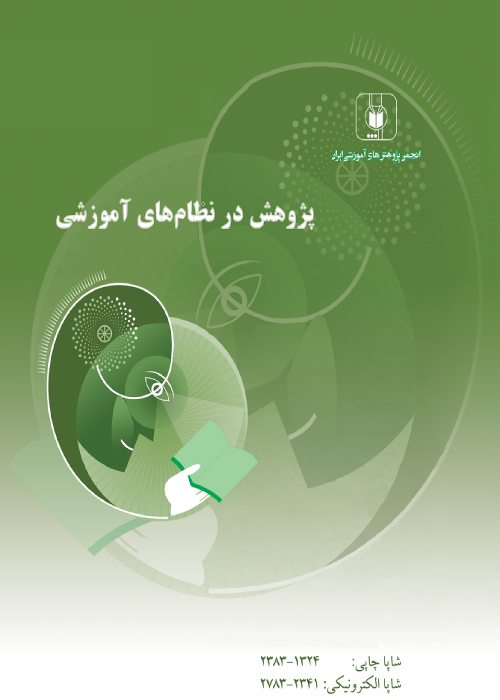Causal model of predicting academic procrastination through academic emotions and self-regulated learning strategies mediated by perfectionism
Author(s):
Article Type:
Research/Original Article (دارای رتبه معتبر)
Abstract:
The purpose of this study was to provide a Causal model of predicting academic procrastination through academic emotions and self-regulated learning strategies mediated by perfectionism of Shiraz girls' high schools students. The present study is a descriptive-correlation method in terms of applied purpose and in terms of method. The statistical population of this study included all students of girls' vocational schools in Shiraz in the academic year 2020-2021with a number of 8100 people. To determine the sample size based, 200 students were selected using multi-stage cluster random sampling method. Assessment tools included riding academic procrastination questionnaire, Pakran et al.'s academic excitement questionnaire, Pintrich and Dargroot self-regulated learning strategies questionnaire, Short et al.'s perfectionism questionnaire, which confirmed the validity and reliability of the tool. Data analysis was performed at two levels of descriptive statistics and inferential statistics. At the descriptive level, mean and standard deviation were studied and at the inferential level, the coefficient of zero order correlation matrix and multivariate regression were performed simultaneously based on Baron and Kenny (1986) model using LISREL and SPSS software version 21. Findings indicated that cognitive strategies, metacognitive strategies and motivational beliefs negatively and significantly predict academic procrastination; Positively and positively predict positive emotions and negatively and positively predict academic procrastination; Positive perfectionism negatively and meaningfully and negative perfectionism positively and meaningfully predicts academic procrastination; Perfectionism plays a significant mediating role in the relationship between self-regulated learning and academic excitement with academic procrastination. The model also has an acceptable fit.
Keywords:
Language:
Persian
Published:
Quarterly Journal of Research in Educational Systems, Volume:16 Issue: 57, 2022
Pages:
62 to 74
magiran.com/p2525805
دانلود و مطالعه متن این مقاله با یکی از روشهای زیر امکان پذیر است:
اشتراک شخصی
با عضویت و پرداخت آنلاین حق اشتراک یکساله به مبلغ 1,390,000ريال میتوانید 70 عنوان مطلب دانلود کنید!
اشتراک سازمانی
به کتابخانه دانشگاه یا محل کار خود پیشنهاد کنید تا اشتراک سازمانی این پایگاه را برای دسترسی نامحدود همه کاربران به متن مطالب تهیه نمایند!
توجه!
- حق عضویت دریافتی صرف حمایت از نشریات عضو و نگهداری، تکمیل و توسعه مگیران میشود.
- پرداخت حق اشتراک و دانلود مقالات اجازه بازنشر آن در سایر رسانههای چاپی و دیجیتال را به کاربر نمیدهد.
In order to view content subscription is required
Personal subscription
Subscribe magiran.com for 70 € euros via PayPal and download 70 articles during a year.
Organization subscription
Please contact us to subscribe your university or library for unlimited access!


